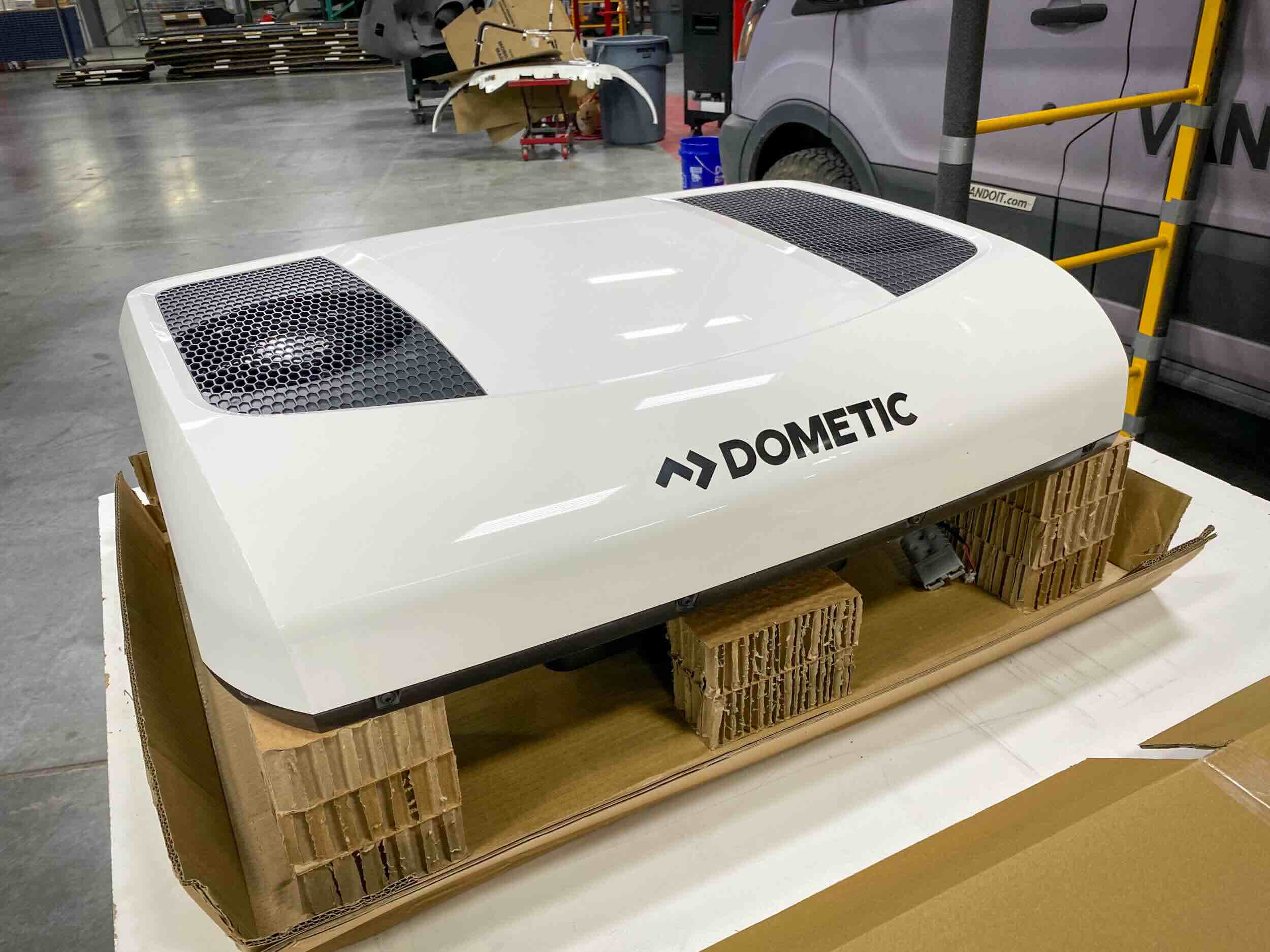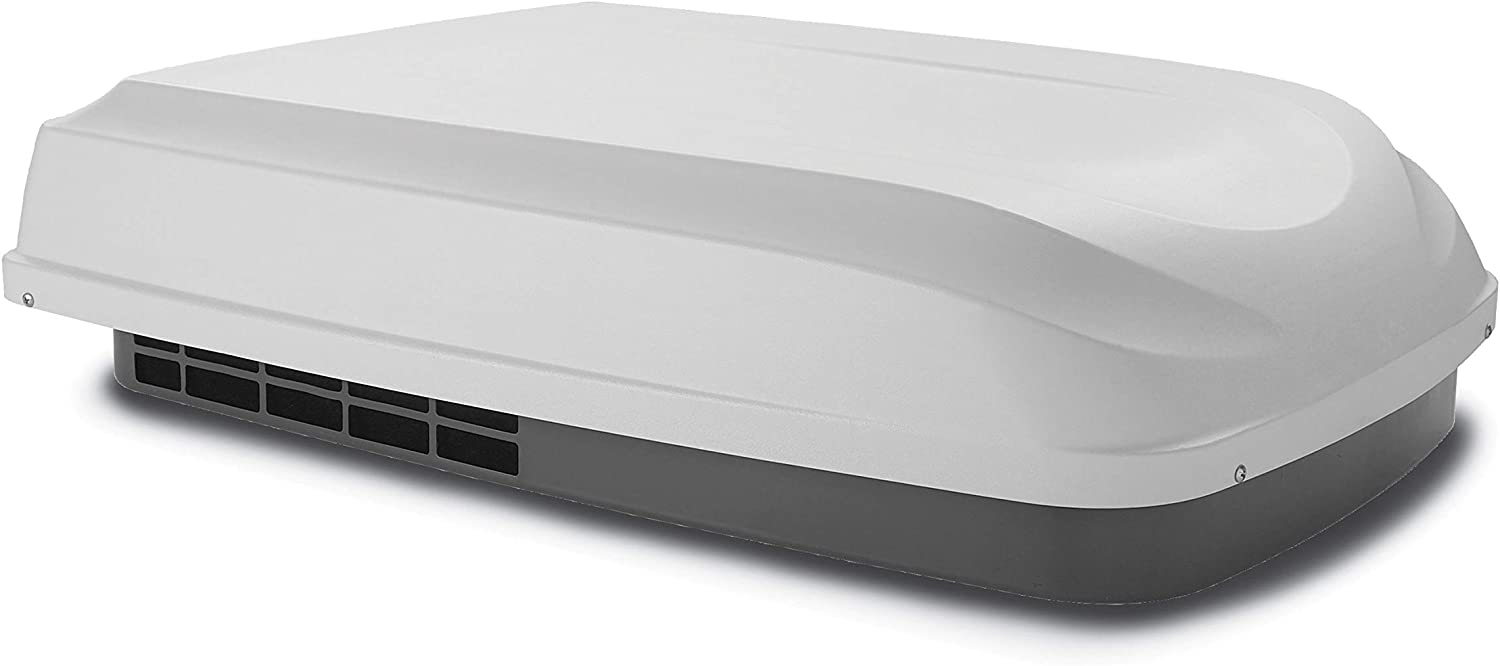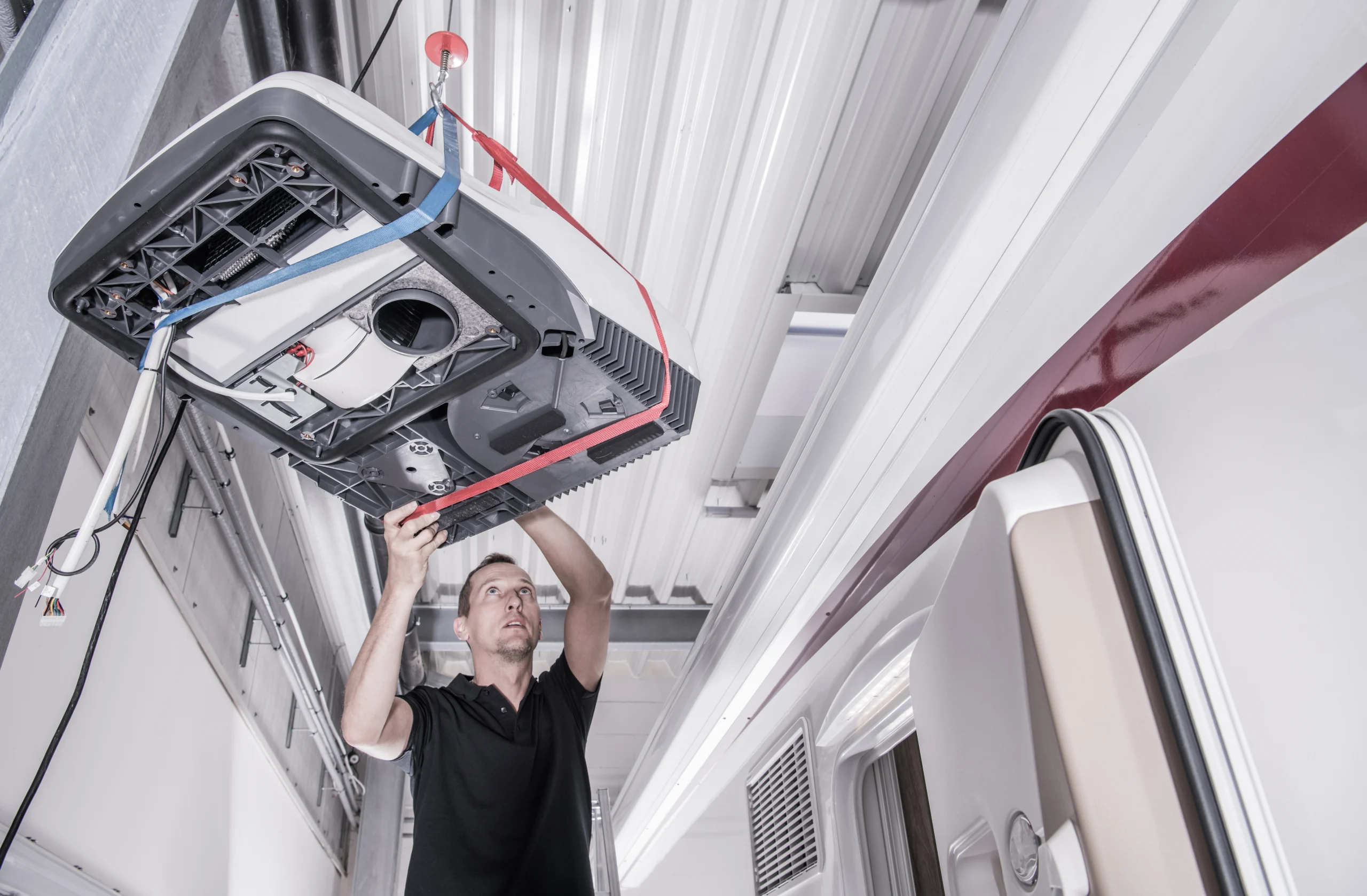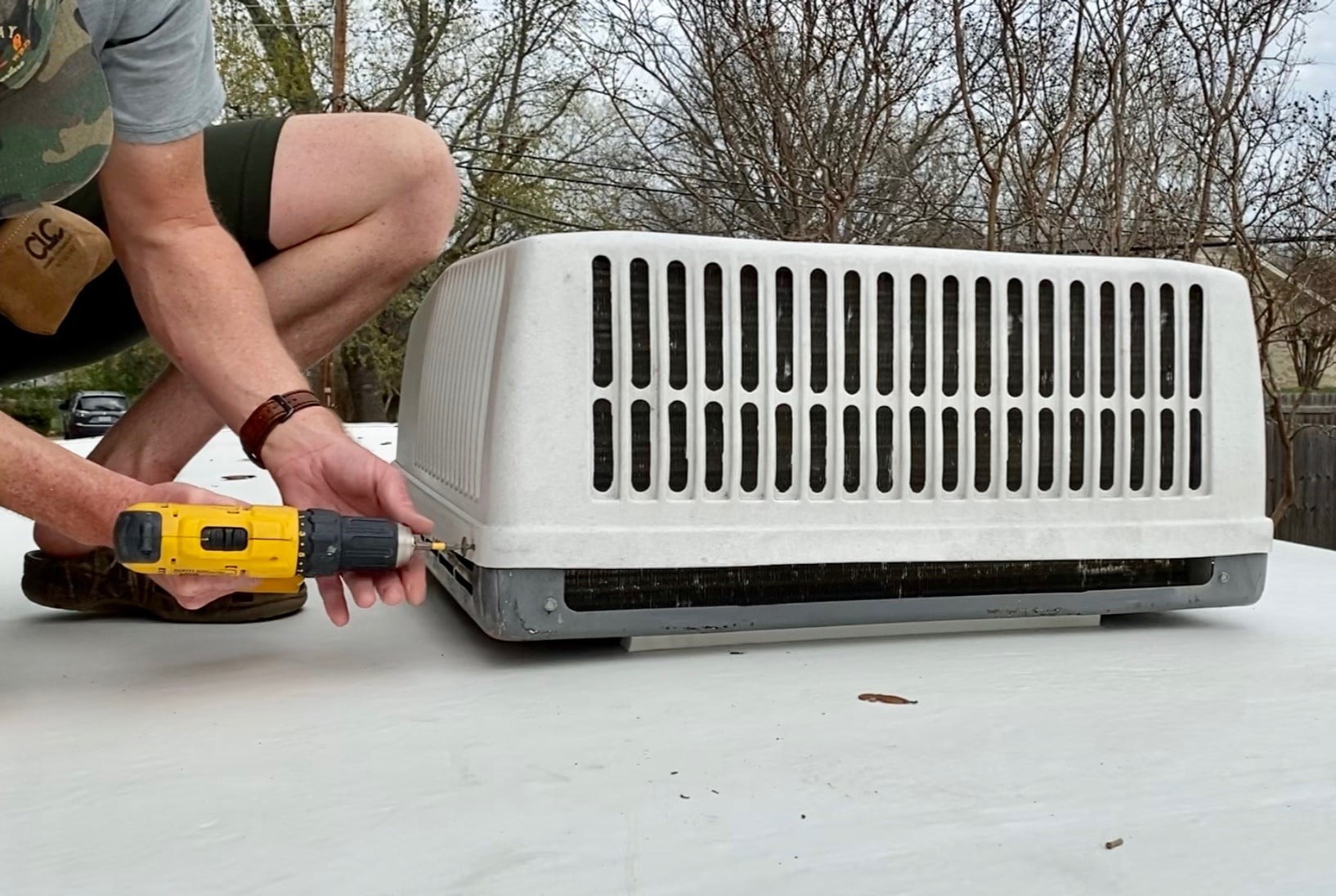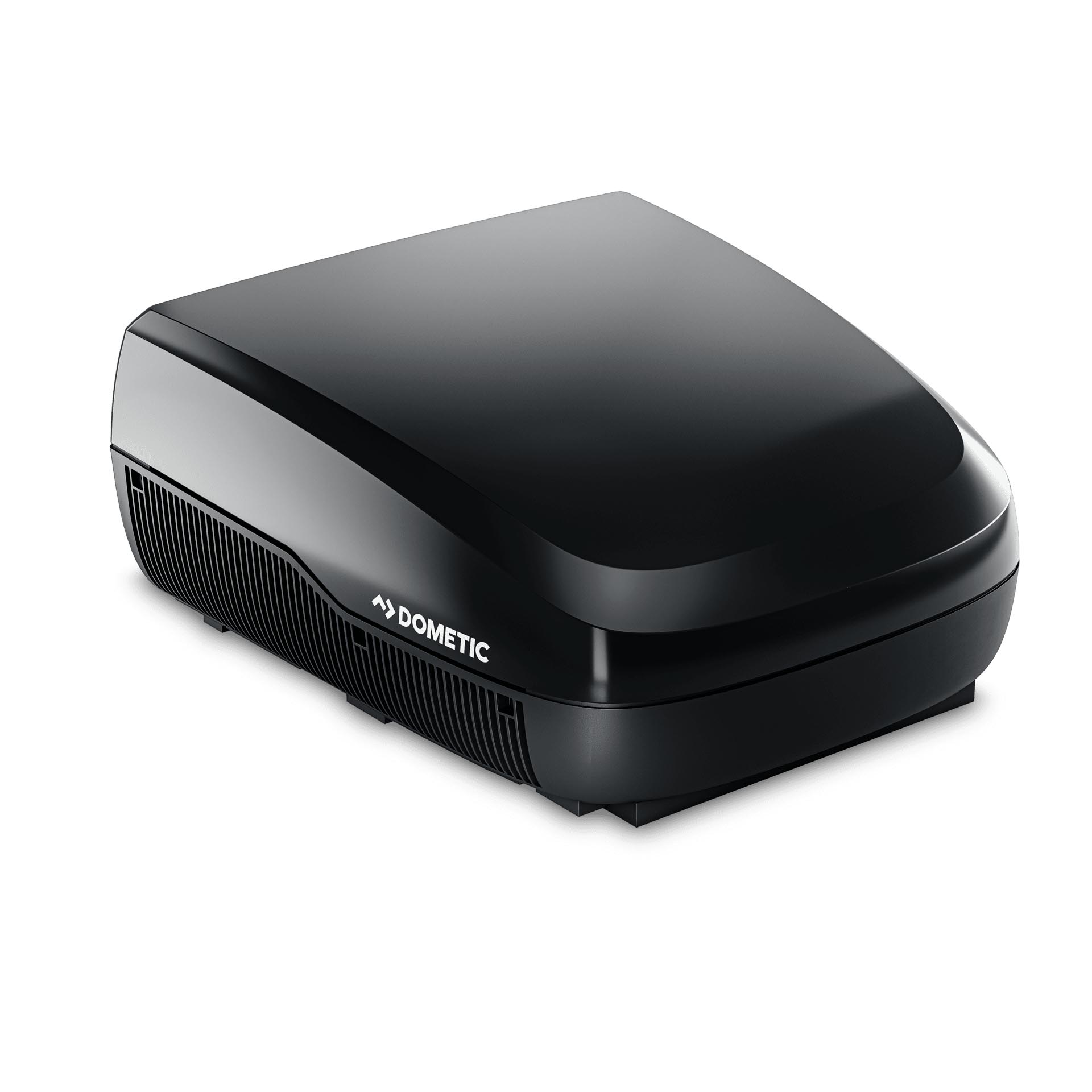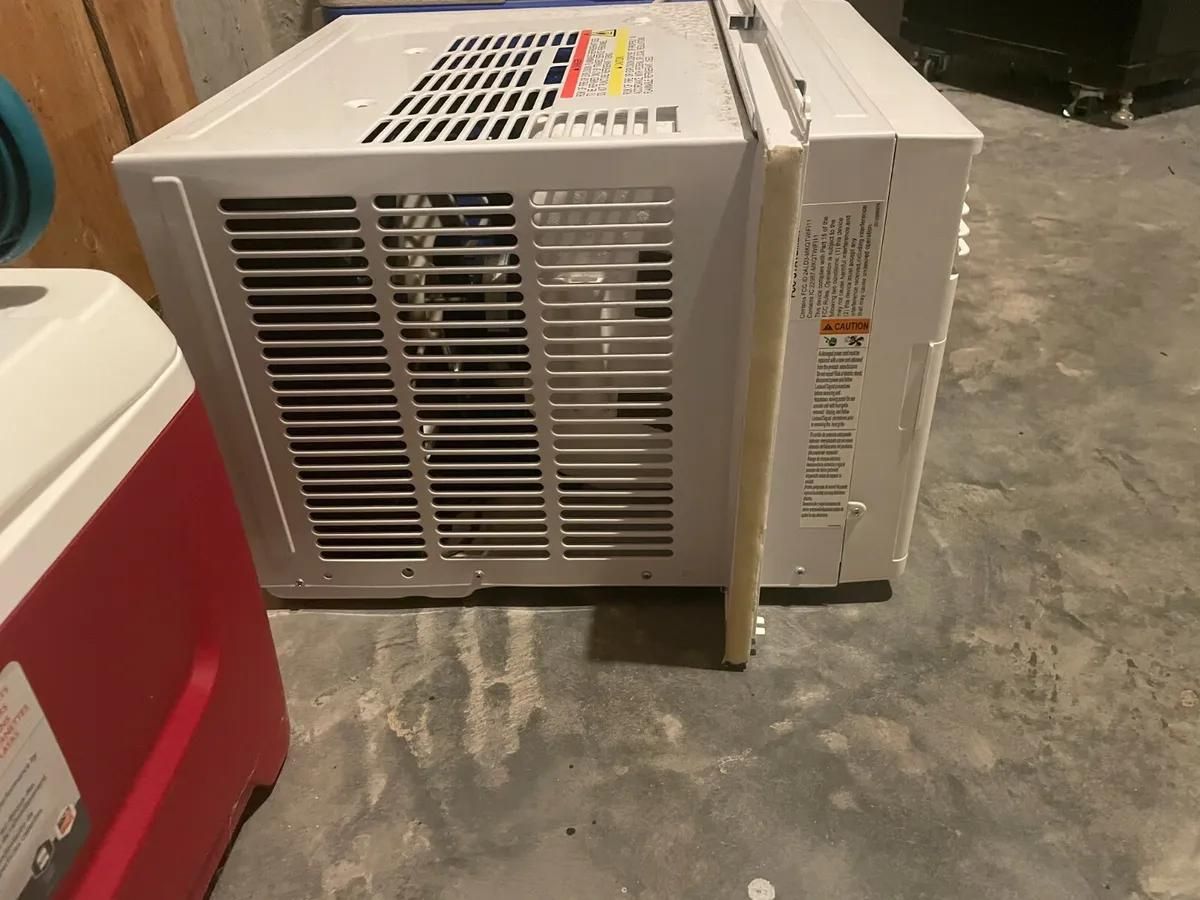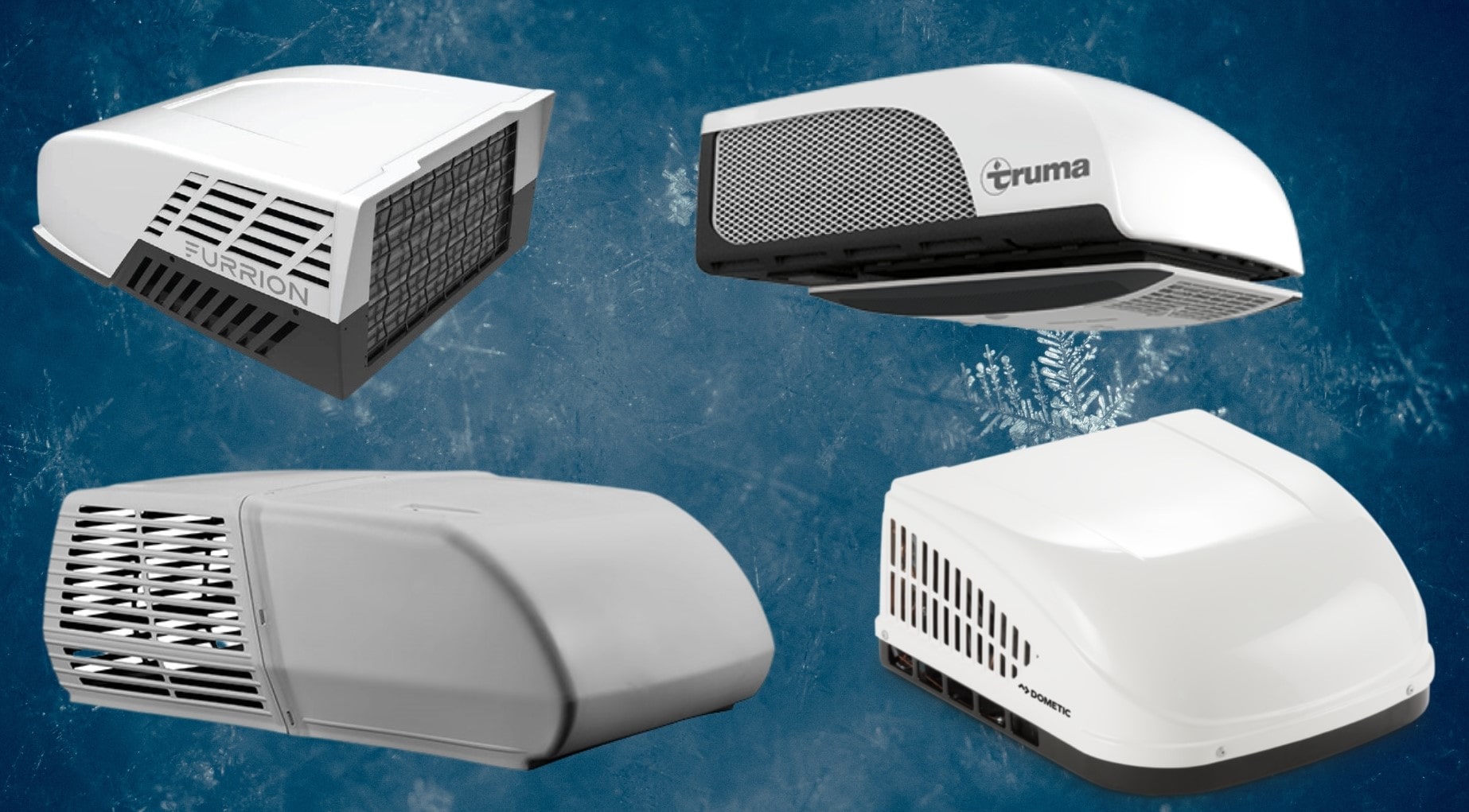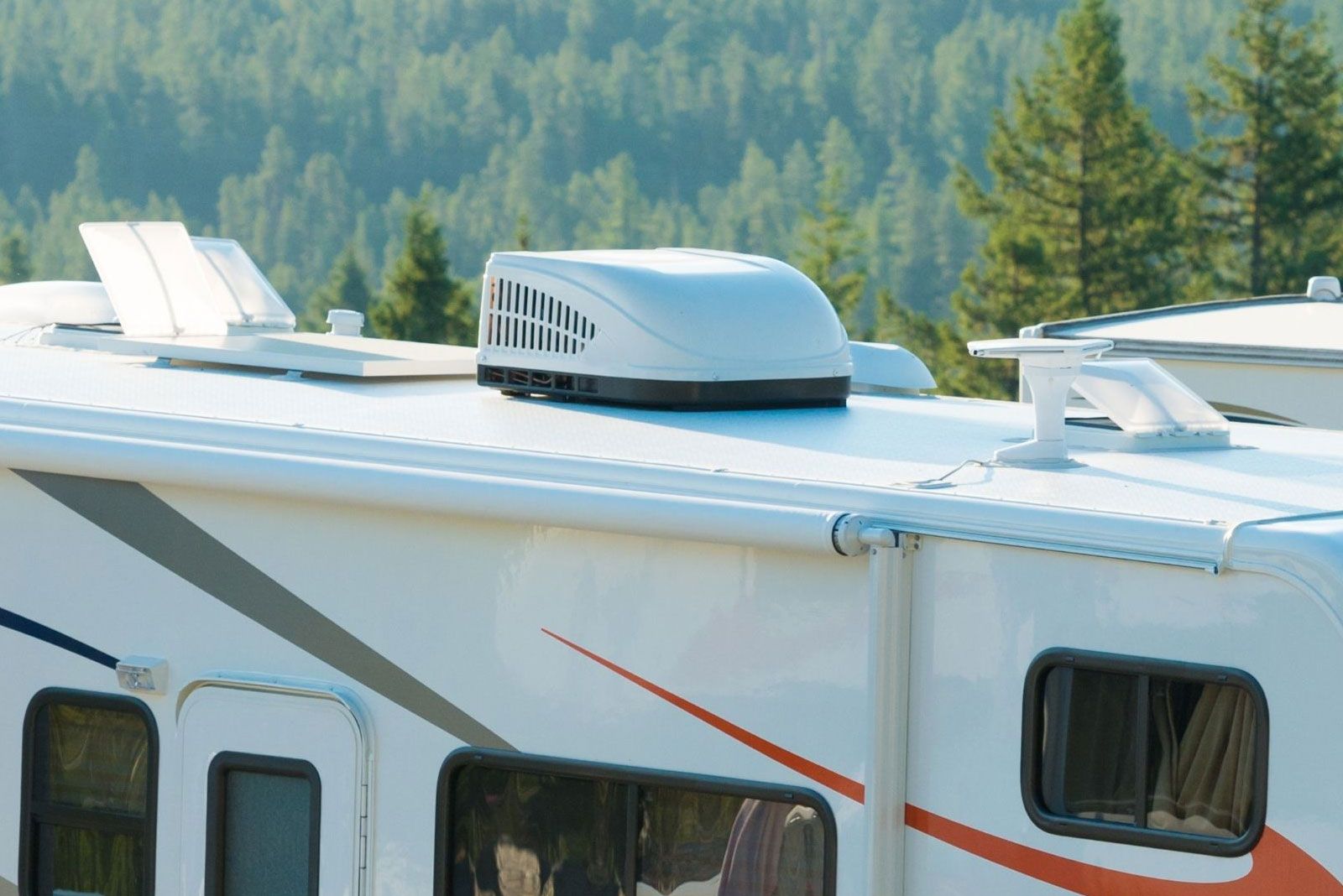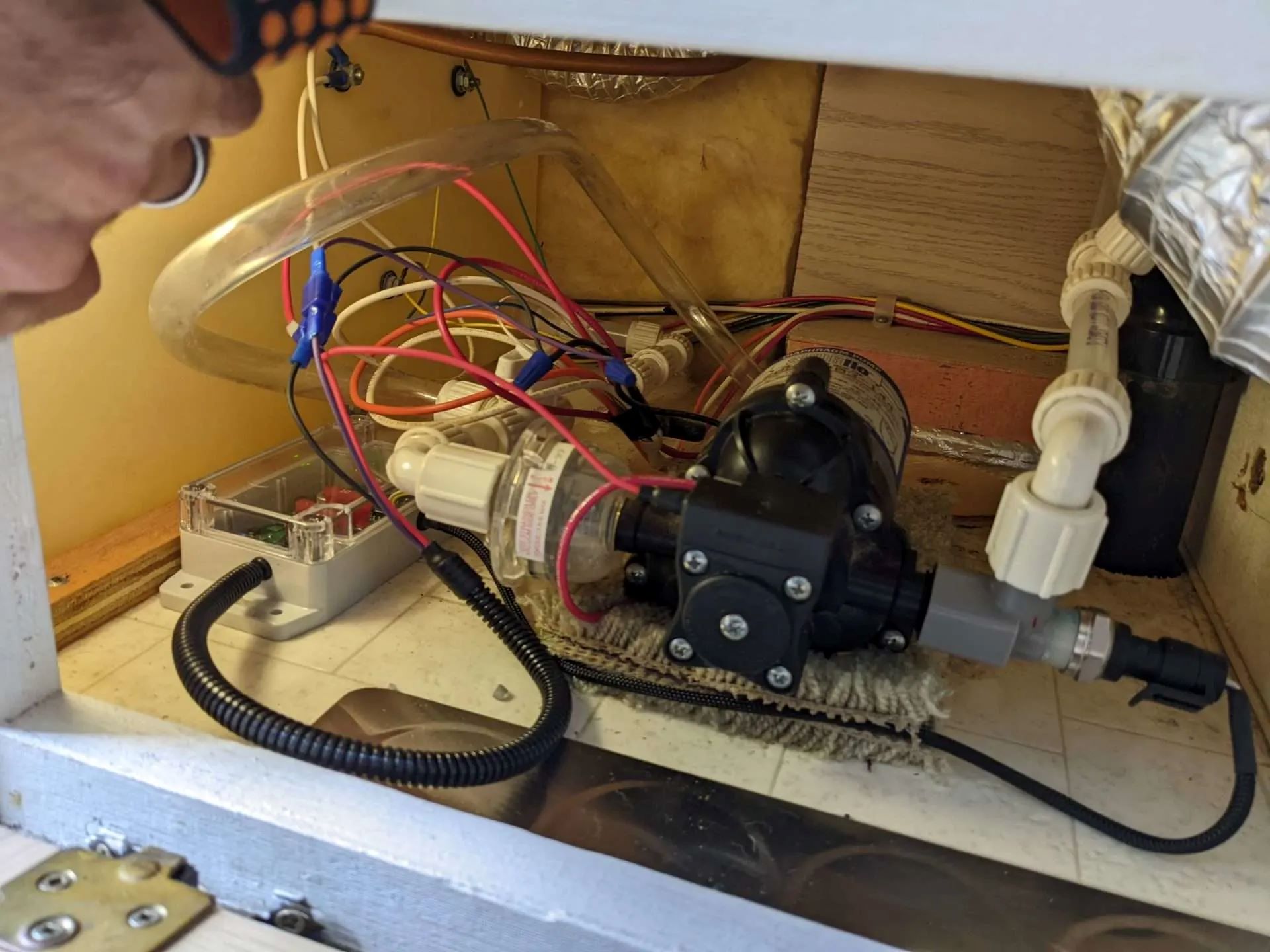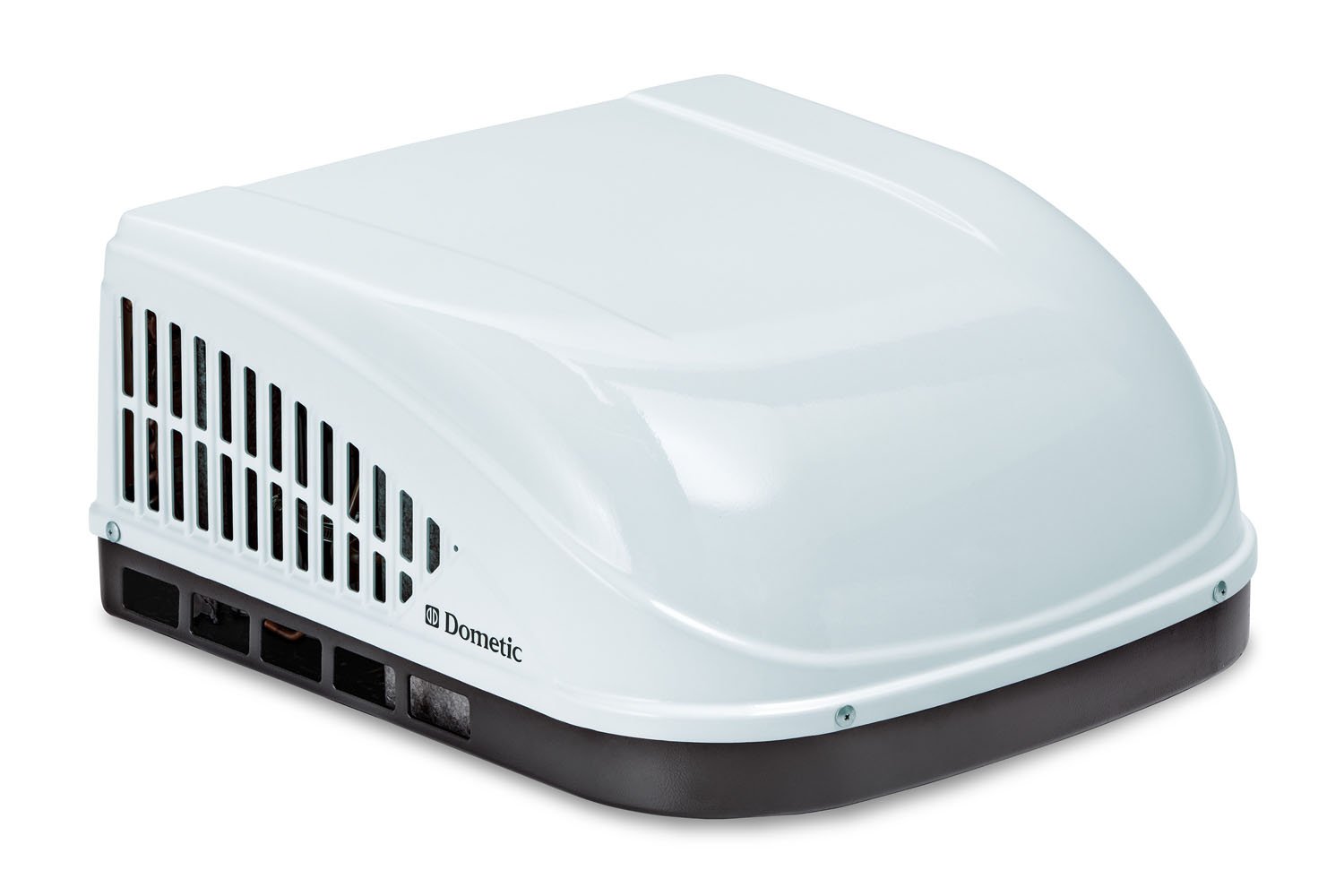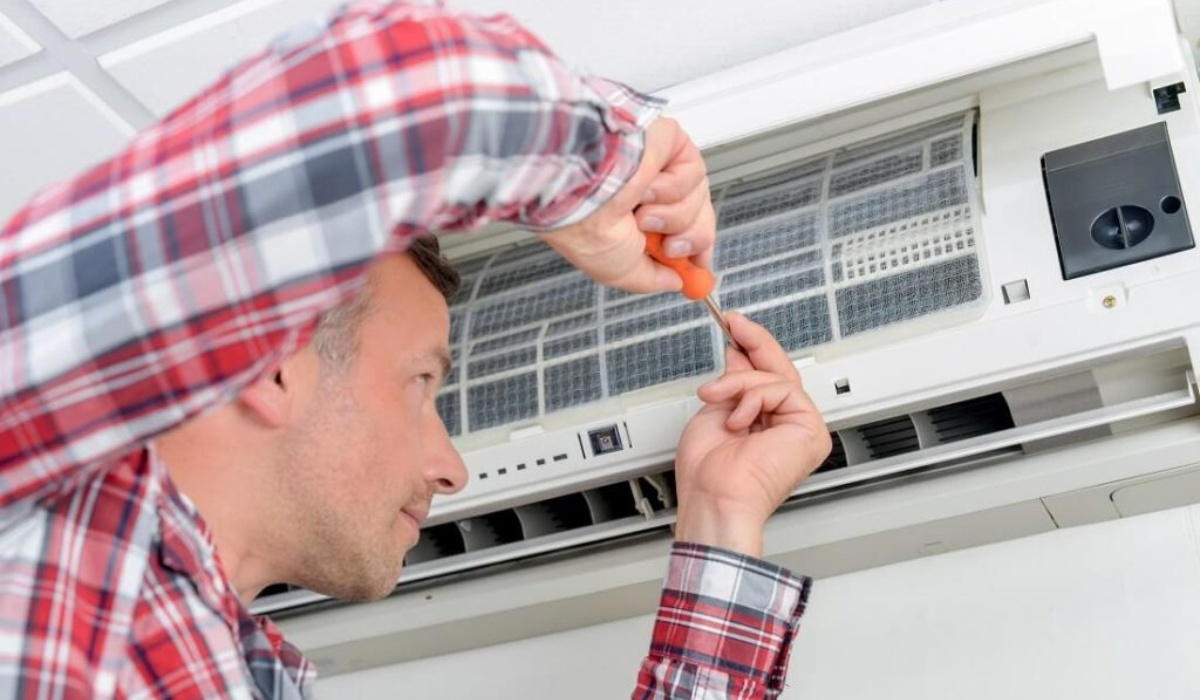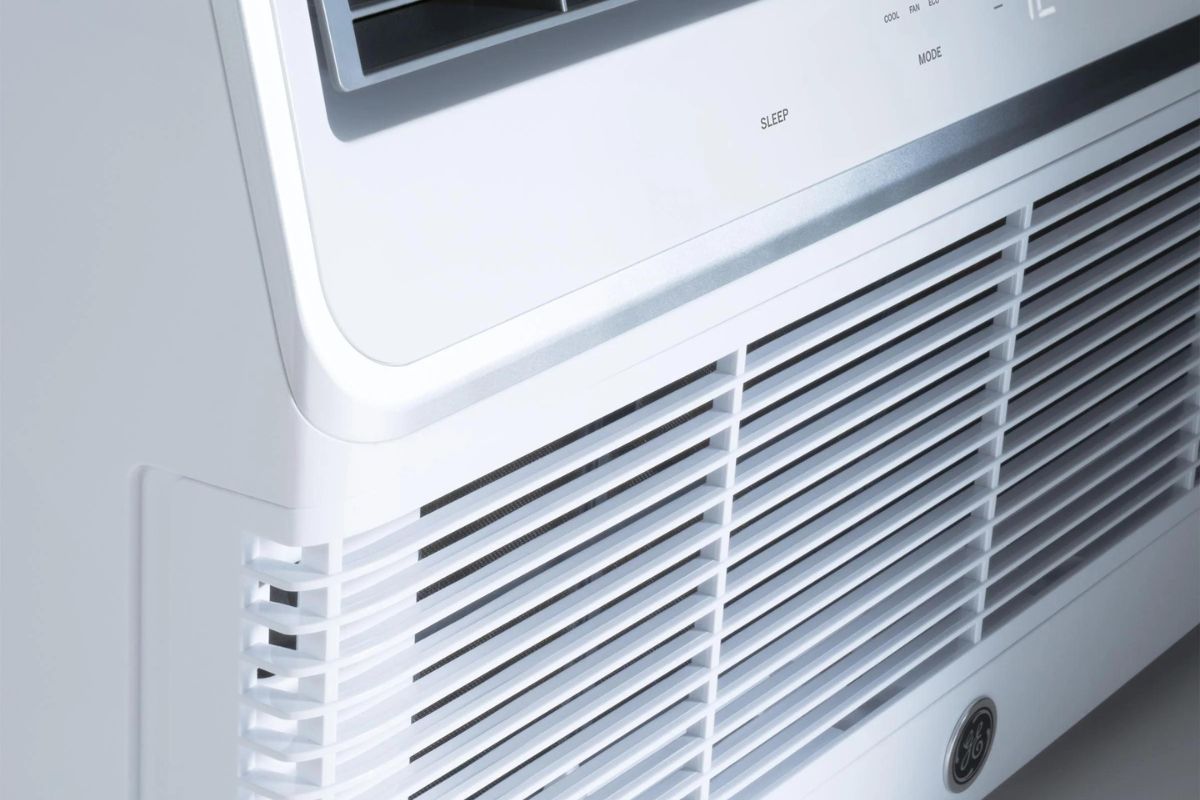Home>Home Maintenance>How To Quiet A Loud RV Air Conditioner
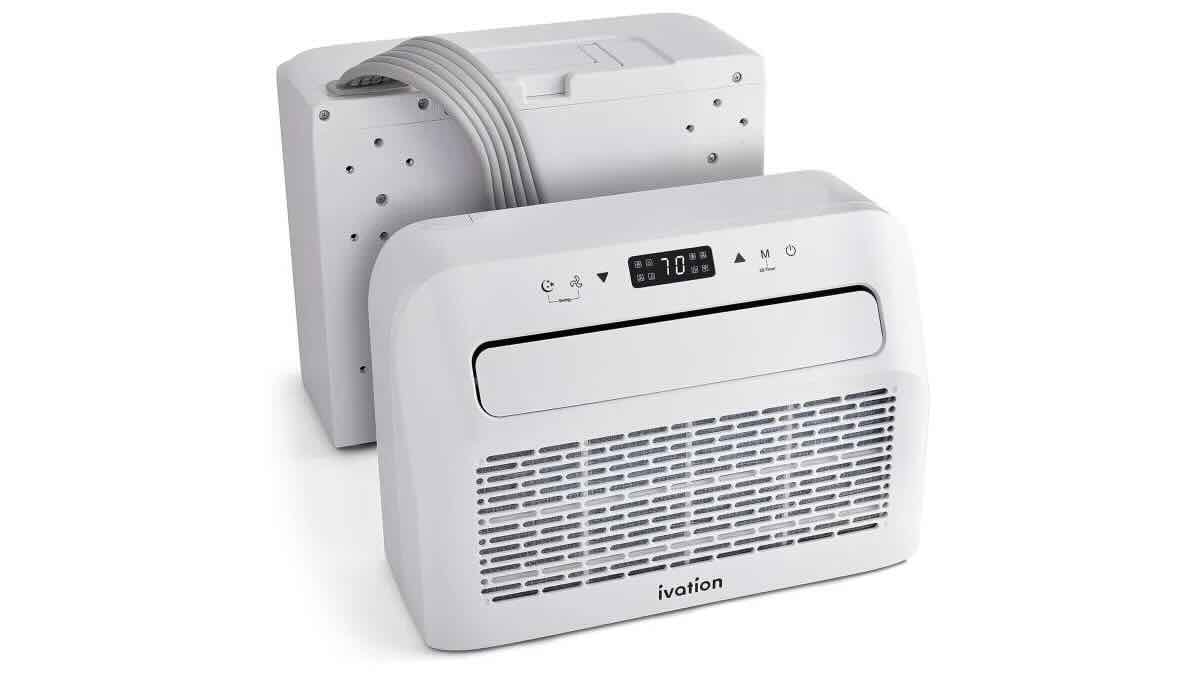

Home Maintenance
How To Quiet A Loud RV Air Conditioner
Modified: October 28, 2024
Learn how to quiet your RV air conditioner with these helpful home maintenance tips. Keep your RV cool and peaceful on your adventures.
(Many of the links in this article redirect to a specific reviewed product. Your purchase of these products through affiliate links helps to generate commission for Storables.com, at no extra cost. Learn more)
Introduction
When you’re on a road trip in your RV, having a comfortable and peaceful environment is essential for a relaxing experience. However, a noisy air conditioner can disrupt the tranquility and make it difficult to enjoy your travels. The good news is that there are steps you can take to quiet your RV air conditioner and regain the serenity you desire.
In this article, we will explore the different causes of noise in an RV air conditioner and provide you with practical solutions to minimize or eliminate those annoying sounds. By following these steps, you can create a more peaceful and enjoyable living environment in your motorhome.
Key Takeaways:
- Keep your RV air conditioner quiet by regularly cleaning air filters, tightening loose screws, and inspecting fan blades. Insulate the ceiling and use soundproofing materials for a peaceful travel experience.
- Reduce RV air conditioner noise by installing rubber isolation pads and addressing common causes such as dirty air filters and poor insulation. Regular maintenance is key to a quiet and enjoyable journey.
Read more: How Loud Should An Air Conditioner Be
Understanding the Noise from an RV Air Conditioner
Before diving into the solutions, it’s important to understand the various factors that contribute to the noise produced by an RV air conditioner. By identifying the root cause of the noise, you can take targeted steps to address it.
One common source of noise is the air conditioner compressor. The compressor is responsible for cooling the air and circulating it throughout the RV. This component is typically located outside the vehicle, and its operation can generate a loud humming or buzzing sound.
In addition to the compressor, the fan inside the air conditioner unit can also generate noise. The fan circulates the air, but over time, the blades may become misaligned or worn out, resulting in a clanking or rattling noise. The air filters and other components within the unit can also cause noise if they become dirty or damaged.
Furthermore, the structure of the RV itself can contribute to the noise levels. Thin walls and insufficient insulation can allow external noises to penetrate the interior of the vehicle, making the air conditioner noise seem even louder. Understanding these factors will help you target the specific areas that need attention in order to quiet your RV air conditioner.
Common Causes of Noisy RV Air Conditioners
There are several common culprits that can make your RV air conditioner noisy. Identifying these causes will help you determine the appropriate solution to quiet your unit. Let’s take a closer look at these common causes:
- Dirty air filters: Over time, dust and debris can accumulate on the air filters of your RV air conditioner. This can restrict airflow and cause the unit to work harder, resulting in increased noise levels. Regularly cleaning or replacing the air filters can help reduce noise.
- Loose screws and bolts: As your RV travels on bumpy roads, it is not uncommon for screws and bolts to become loose. Loose components can vibrate and produce rattling or buzzing noises. Inspecting and tightening any loose screws and bolts can minimize these noises.
- Worn-out fan blades: The fan inside the air conditioner unit is responsible for circulating the air. Over time, the fan blades can become misaligned or worn out, causing them to hit against other parts and create clanking noises. Checking and replacing any damaged fan blades can help reduce the noise.
- Lack of insulation: Insufficient insulation in the RV can allow external noises to penetrate the interior, making the air conditioner noise seem louder. Adding insulation to the walls, floors, and ceiling can help reduce noise transmission.
- Poor installation: If your RV air conditioner was not installed properly, it can result in excess vibration and noise. Inspecting the installation and making any necessary adjustments or repairs can help eliminate the noise issues.
By addressing these common causes, you can significantly reduce the noise levels of your RV air conditioner and enjoy a quieter and more peaceful environment inside your motorhome.
Steps to Quiet an RV Air Conditioner
Now that you understand the sources of noise and the common causes of a noisy RV air conditioner, let’s explore the steps you can take to quiet your unit and create a more serene living environment:
- Inspect the Air Conditioner Unit: Start by thoroughly inspecting the air conditioner unit both inside and outside of your RV. Look for any visible signs of damage or loose components that may be contributing to the noise.
- Clean the Air Filters: Remove the air filters and clean them using mild soap and water. Be sure to dry them thoroughly before reinserting them into the unit. Clean air filters improve airflow and reduce strain on the unit, resulting in quieter operation.
- Tighten Loose Screws and Bolts: Use a screwdriver or wrench to tighten any loose screws and bolts on the air conditioner unit. This will help minimize vibrations and reduce rattling noises.
- Check the Fan Blades for Damage: Inspect the fan blades for any signs of damage, such as cracks or bending. If the blades are damaged, replace them to eliminate clanking or scraping noises caused by misaligned or worn-out blades.
- Insulate the RV Ceiling: Apply insulation material to the ceiling of your RV to reduce noise transmission. This can help muffle the sounds of the air conditioner and outside disturbances, creating a quieter environment.
- Install Rubber Isolation Pads: Place rubber isolation pads between the air conditioner unit and the roof of your RV. These pads absorb vibrations and prevent them from transferring to the RV structure, effectively reducing noise levels.
- Use Soundproofing Materials: Consider using soundproofing materials such as acoustic foam or mass-loaded vinyl to further reduce noise. Install these materials on the walls, floors, and ceiling of your RV to create a more soundproof environment.
By following these steps, you can significantly mitigate the noise produced by your RV air conditioner and enjoy a more peaceful and comfortable experience on your travels. Remember to regularly maintain and clean your air conditioner to ensure its optimal performance and noise reduction.
Inspect the Air Conditioner Unit
The first step in quieting your RV air conditioner is to thoroughly inspect the unit, both inside and outside of your vehicle. This will help you identify any visible signs of damage or loose components that may be contributing to the noise.
Start by examining the external part of the air conditioner, typically located on the roof of the RV. Look for any dents, cracks, or other damage that may affect the unit’s performance. Pay close attention to the fan blades, ensuring they are intact and not bent or misaligned.
Next, move inside your RV and inspect the interior components of the air conditioner. Remove the air filters and check for any signs of damage or excessive dirt accumulation. Dirty air filters can restrict the airflow and make the unit noisier as it works harder to cool the air. Clean or replace the air filters if necessary.
During your inspection, also check for any loose screws, bolts, or other fasteners. Vibrations from the air conditioner’s operation can cause these components to loosen over time, resulting in additional noise. Use a screwdriver or wrench to tighten any loose connections and ensure a secure fit.
If you notice any significant damage or issues during your inspection, you may need to consult a professional HVAC technician to assess the situation and perform any necessary repairs. They will have the expertise and tools to fix any complex problems and ensure optimal performance.
Regularly conducting visual inspections of your air conditioner unit will help you catch any issues early on and prevent them from escalating into more significant problems. By addressing any visible damage or loose components, you can effectively reduce the noise levels and improve the overall functionality of your RV air conditioner.
Read more: How To Recharge An RV Air Conditioner
Clean the Air Filters
Cleaning the air filters is an essential step in quieting your RV air conditioner. Over time, the air filters can become clogged with dust, debris, and other particles, causing the unit to work harder, which can result in increased noise levels.
To clean the air filters, start by locating them inside your RV. They are typically found near the ceiling-mounted air conditioning unit. Remove the filters carefully, following the manufacturer’s instructions or consulting your RV owner’s manual if needed.
Once the filters are removed, inspect them for excessive dirt or debris. If they appear dirty or clogged, it’s time to give them a thorough cleaning. You can clean the filters using a mild soap or detergent mixed with warm water. Gently scrub the filters to remove any dirt and rinse them thoroughly with clean water.
After cleaning, make sure the filters are completely dry before reinserting them into the air conditioning unit. You can either air-dry them or use a clean towel to remove excess moisture. Ensure that the filters are properly aligned and securely placed back in their designated slots.
Cleaning the air filters not only improves the efficiency and overall performance of your RV air conditioner, but it also helps reduce noise by allowing proper airflow. When the air filters are clean, the unit doesn’t have to work as hard to circulate the air, resulting in quieter operation.
It is recommended to clean the air filters regularly, ideally every one to three months or as specified by the manufacturer. Regular maintenance of the filters will help keep your RV air conditioner running smoothly and quietly, providing you with a comfortable and peaceful environment during your travels.
Clean or replace the air filter regularly to ensure proper airflow and reduce noise from the RV air conditioner.
Tighten Loose Screws and Bolts
One of the common causes of noise in RV air conditioners is loose screws and bolts. As your RV travels on bumpy roads, vibrations can cause these fasteners to gradually loosen over time. Loose screws and bolts can result in rattling or buzzing noises, which can be quite annoying.
To address this issue, you will need a screwdriver or wrench to tighten any loose screws and bolts on the air conditioner unit. Start by inspecting the exterior of the unit, focusing on areas where there may be visible screws or bolts.
Carefully tighten any loose screws or bolts you come across, making sure not to over-tighten them. It’s important to strike a balance between tightening enough to secure the components and avoiding excessive force that could potentially damage the unit.
Pay particular attention to areas around the fan, motor, and any other moving parts. These components are prone to vibrations, which can cause screws and bolts to gradually loosen. By ensuring they are fastened securely, you can reduce the chances of noise-producing vibrations.
In addition to the air conditioner unit itself, check other components or accessories that may be mounted on the roof or near the unit. These may include vents, solar panels, or satellite dishes. Loose screws or bolts on these accessories can also contribute to noise issues.
Regularly inspecting and tightening loose screws and bolts will help maintain the stability and integrity of your RV air conditioner. It can significantly reduce vibrations and eliminate any associated noises, resulting in a quieter and more enjoyable experience during your travels.
Check the Fan Blades for Damage
If your RV air conditioner is producing clanking or scraping noises, the fan blades may be the culprit. Over time, the fan blades can become misaligned or worn out, causing them to hit against other parts and create noise.
To address this issue, start by turning off the air conditioner and removing the protective cover to access the fan blades. Use caution and follow the manufacturer’s instructions or consult your RV owner’s manual to ensure safe handling.
Inspect the fan blades carefully for any signs of damage, such as cracks, bending, or excessive wear. Damaged or misaligned blades can disrupt the balance of the fan and create noise during operation.
If you notice any damaged fan blades, it is recommended to replace them. Contact the manufacturer or a certified HVAC technician to obtain the correct replacement blades for your specific air conditioner model.
When replacing the fan blades, follow the instructions provided by the manufacturer or seek professional assistance if needed. Improper installation of the blades can result in further damage or noise issues.
Regularly checking the condition of the fan blades and replacing them when necessary will help ensure smooth and quiet operation of your RV air conditioner. Well-maintained fan blades will minimize noise and contribute to a more peaceful and comfortable environment in your motorhome.
Insulate the RV Ceiling
Insufficient insulation in your RV can allow external noises to penetrate the interior, making your air conditioner noise seem even louder. To mitigate this issue, one effective solution is to insulate the ceiling of your RV.
Start by removing any existing ceiling panels, if applicable, to gain access to the space between the roof and the interior ceiling. Inspect the area for any gaps or areas where noise can easily enter.
Choose an appropriate insulation material for your RV ceiling. There are various options available, such as fiberglass insulation, foam boards, or spray foam insulation. Consider the insulation’s effectiveness in reducing noise as well as its thermal properties to enhance overall comfort.
Follow the manufacturer’s instructions or consult with an insulation professional to properly install the insulation material. Ensure that it is evenly distributed and covers all the necessary areas, paying particular attention to potential noise entry points.
Reinstall the ceiling panels or finish the insulation with the appropriate materials, following the recommended guidelines. This will help create a seamless and attractive ceiling while further reducing noise transmission.
In addition to reducing air conditioner noise, insulating the RV ceiling has the added benefit of enhancing your RV’s overall energy efficiency and comfort. It can help regulate interior temperature, reduce external noise, and improve overall insulation performance.
By properly insulating your RV ceiling, you can significantly reduce the impact of air conditioner noise and create a quieter and more enjoyable living environment inside your motorhome.
Read more: How To Clean An RV Air Conditioner
Install Rubber Isolation Pads
If you’re experiencing excessive vibrations and noise from your RV air conditioner, installing rubber isolation pads can be an effective solution. These pads help absorb vibrations and prevent them from transferring to the RV structure, resulting in reduced noise levels.
To install rubber isolation pads, start by turning off the air conditioner and accessing the unit on the roof of your RV. Carefully remove the air conditioner cover or any other components that may be obstructing the unit.
Place rubber isolation pads between the air conditioner unit and the roof of your RV. The pads should be positioned to support the weight of the unit and provide a cushioning effect. Make sure the pads are evenly distributed and cover the entire base of the unit.
Depending on the size of your air conditioner unit, you may need multiple rubber isolation pads. Ensure that you choose pads specifically designed for dampening vibrations and capable of withstanding the weight and intensity of your unit.
After installing the rubber isolation pads, carefully reassemble the air conditioner components and secure them in place. Double-check that the unit is properly aligned and balanced to avoid any stress or strain on the unit during operation.
Rubber isolation pads effectively minimize vibrations and noise transmission, creating a quieter environment in your RV. They also help protect the roof of your RV from potential damage caused by constant vibration.
Regularly inspect the rubber isolation pads to ensure they remain in good condition. If you notice any signs of wear or deterioration, consider replacing them to maintain optimal vibration dampening performance.
By installing rubber isolation pads, you can significantly reduce the noise produced by your RV air conditioner and enjoy a more peaceful and relaxing atmosphere during your travels.
Use Soundproofing Materials
If you’re looking for a comprehensive solution to minimize air conditioner noise in your RV, consider using soundproofing materials. These materials are specifically designed to absorb and dampen sound waves, effectively reducing noise transmission and creating a quieter living environment.
There are various soundproofing materials available in the market, such as acoustic foam panels, mass-loaded vinyl, and soundproof curtains. Each material has its own unique properties and benefits. Assess your specific needs and the areas where noise is most problematic to determine the best soundproofing solution.
One common approach is to install acoustic foam panels on the walls and ceiling of your RV. These panels are designed to absorb sound waves, reducing airborne noise and minimizing echoes. Place the panels strategically in areas where noise is most prominent, such as near the air conditioner unit.
Another option is to use mass-loaded vinyl, which is a dense but flexible material. You can apply it to the interior walls, ceiling, and floors to block sound transmission. Mass-loaded vinyl can effectively reduce noise from external sources as well as air conditioner noise within your RV.
Soundproof curtains offer a convenient and versatile option for reducing noise in your RV. These curtains are made with noise-reducing materials and can be easily installed over windows or as room dividers to dampen noise levels.
Ensure proper installation of the chosen soundproofing materials by following the manufacturer’s instructions. Pay attention to any fire or safety regulations and take into account the added weight and space requirements.
By using soundproofing materials, you can significantly minimize air conditioner noise and other external disturbances, creating a more peaceful and enjoyable atmosphere inside your RV.
Remember that soundproofing materials complement the previous steps we have discussed. Consider combining multiple solutions to achieve the best results and maximize noise reduction.
Conclusion
Noisy RV air conditioners can disrupt the tranquility of your travels and make it challenging to enjoy your time on the road. Fortunately, by following these steps, you can quiet your RV air conditioner and create a more peaceful and comfortable living environment inside your motorhome.
Start by understanding the sources of noise and common causes of a noisy RV air conditioner. This knowledge will help you identify the specific issues and determine the appropriate solutions.
Inspecting the air conditioner unit, cleaning the air filters, and tightening loose screws and bolts are important maintenance steps that can significantly reduce noise levels. Additionally, checking the fan blades for damage, insulating the RV ceiling, and installing rubber isolation pads help minimize vibrations and noise transmission.
For a more comprehensive solution, consider using soundproofing materials such as acoustic foam panels, mass-loaded vinyl, or soundproof curtains. These materials absorb sound waves and block noise transmission, creating a quieter living space.
Regular maintenance, periodic inspections, and a proactive approach to resolving noise issues will ensure the continued performance and functionality of your RV air conditioner.
By taking these steps, you can transform your RV into a peaceful oasis on the road, allowing you to fully enjoy your adventures without the disturbance of a noisy air conditioner.
Remember, a quiet and comfortable environment is essential for a relaxing and rejuvenating road trip experience. Take the time to implement these solutions and reclaim the serenity you desire in your home away from home.
Frequently Asked Questions about How To Quiet A Loud RV Air Conditioner
Was this page helpful?
At Storables.com, we guarantee accurate and reliable information. Our content, validated by Expert Board Contributors, is crafted following stringent Editorial Policies. We're committed to providing you with well-researched, expert-backed insights for all your informational needs.
